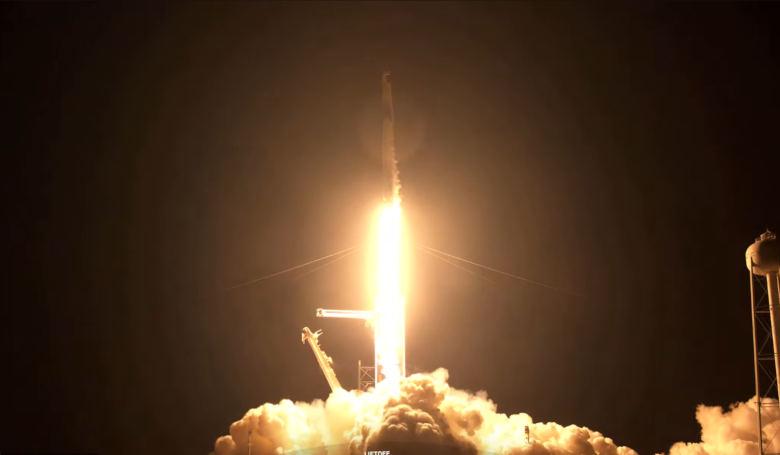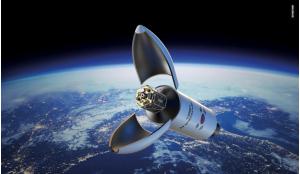A SpaceX Falcon 9 rocket carrying four space tourists blasted off Wednesday night from the Kennedy Space Center in Florida for the first mission to orbit the globe with an all-civilian crew.
A huge fireball illuminated the sky as the rocket's nine engines began to pull away from Earth at 8:02 pm EDT (00:02 GMT Thursday).
Around 12 minutes later, the Dragon capsule separated from the rocket's send stage as the crew entered orbit, while the re-usable first stage made its way back to Earth for a vertical landing on a sea barge, marking the company's 92nd booster recovery.
"A few have gone before and many are about to follow," said Jared Isaacman, the 38-year-old billionaire who chartered the flight.
The spaceship's trajectory will take it to an altitude of 575 kilometers (357 miles), which is deeper into space than the International Space Station (ISS).
After spending three days spinning around the planet, the four-person crew, all Americans, will splash down off the Florida coast.
"The #Inspiration4 launch reminds us of what can be accomplished when we partner with private industry!" tweeted NASA administrator Bill Nelson ahead of the launch.
Building up commercial capability has been the vision of NASA's commercial crew program since it was founded in 2011.
Isaacman's three crewmates, Hayley Arceneaux, Chris Sembroski and Sian Proctor were selected through a competition, and their stories have been followed in a Netflix documentary.
The mission is aiming to raise $200 million for St Jude's Children's Research Hospital, a leading facility in Tennessee. Arceneaux received treatment there as a child, and now works there.
The crew will take with them various objects – a ukulele, hops intended to brew space beer and several digital assets known as non-fungible tokens – that will be auctioned off for the cause.
The Dragon is equipped, for the first time, with a cupola observation dome, the largest ever space window, to take in the view. The dome replaces the usual mechanism used on Dragons to dock with the ISS.











